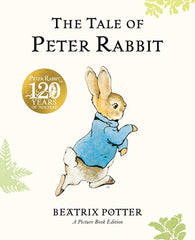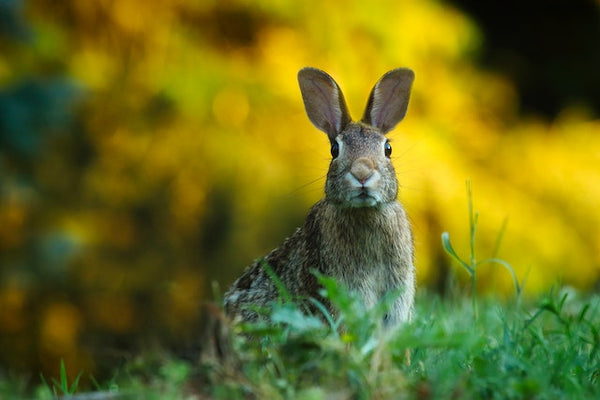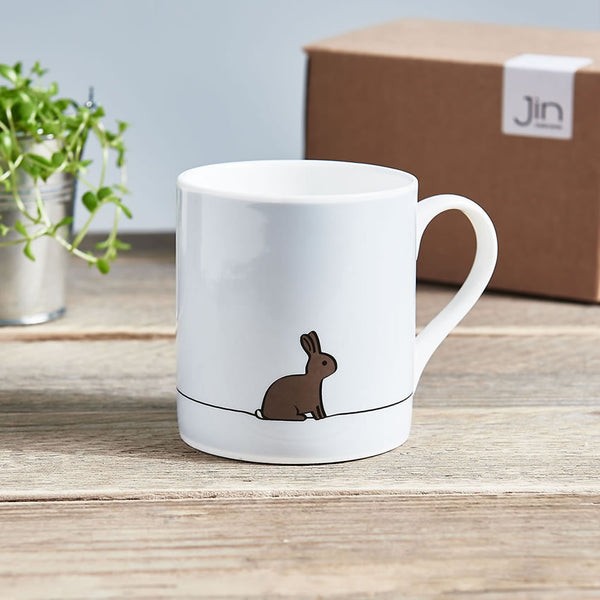The Year of the Rabbit: What do Rabbits symbolise?
Rabbits have been domesticated for centuries and are popular pets across the world. But what do these cute creatures represent? In different cultures, rabbits symbolise everything from good luck to fertility. With Chinese New Year celebrating the Year of the Rabbit, it's time to look closer at the meaning of rabbits in different parts of the world.
In Chinese culture, the rabbit is the fourth of all zodiac animals. Every 12 years Rabbit will make an appearance and be celebrated at new year. So in 2023, on 22nd January, the new Year of the Rabbit begins.
Previously, Year of the Rabbit was in 2011, 1999, 1987, 1975, 1963, 1951, 1939, 1927. Those born into Year of the Rabbit are thought to be great socialisers with an attractive aura. They may find it hard to open up to others and often turn to escapism. Although conservative in their actions, occasionally they need surprises to spice things up! The rabbit is indeed a curious creature so let's find out more.
The history of rabbits in mythology and folklore
Rabbits have always had a special place in mythology and folklore. They are often seen as mystical creatures – both wise and mischievous at the same time – because of their swift movements, clever minds, and close connection to the natural world. In some ancient cultures, rabbits were symbols of fertility and prosperity. For instance, in greek times they were sacred to Aphrodite, the goddess of love and beauty. While in later folklores they're often portrayed as tricksters who can bring luck and good fortune if treated with respect.
In early European history, and as early as 600 BC, carrying a rabbit's foot was believed to bring protection and good luck. This belief is found in many parts of the world.
The history of rabbits in mythology shows us that these gentle creatures deserve love and attention from us all – so let's take care of our beloved bunnies!

The different meanings associated with rabbits across cultures
Rabbits have captivated cultures and imaginations all around the world - from Japan with its mystical Moon Rabbit, to China which associates them with longevity, to ancient Rome where they represent fertility. Part of their charm is that in most cases, rabbits are associated with kindness, gentleness and personal affection.
Of course, the unforgettable tale of Peter Rabbit eloquently celebrates a combination of bravery and mischievousness through its main character! Ultimately, rabbits play an important role in our lives because they offer us comfort, joy and strength - it's no surprise that when we see this adorable creature we immediately feel safe and curious at the same time.
The symbolism of rabbits in art and literature
 Rabbits have captured the imaginations of artists and writers for centuries, often as symbols of fertility and fecundity. From ancient Greek art depicting bunnies as carriers of Aphrodite's messages to Shakespeare’s use of poetic phrases such as a “breed of rabbit rabbits” in Richard II, rabbits are featured in diverse works throughout history.
Rabbits have captured the imaginations of artists and writers for centuries, often as symbols of fertility and fecundity. From ancient Greek art depicting bunnies as carriers of Aphrodite's messages to Shakespeare’s use of poetic phrases such as a “breed of rabbit rabbits” in Richard II, rabbits are featured in diverse works throughout history.Why rabbits continue to be popular symbols today

Rabbits have been treasured symbols in many different cultures throughout history. From Easter bunnies to Peter Rabbit, they continue to be a favoured subject of literature and art. These days, people are increasingly turning to rabbits as symbols of eco-friendliness, kindness, and even fun. Rabbits only eat vegetarian foods, making them an ideal harbinger of “green” values.
They are also highly social animals that care for their young with intelligence and devotion, both qualities that we humans can surely appreciate. In addition, the joy of watching a happy rabbit hop across a room has been providing amusement for centuries - proving that these creatures are capable of bringing out the child in all of us!
The symbolism of rabbits is plentiful, demonstrating the power of this animal in so many cultures. Through literature and art, we can experience how rabbit symbolism has been passed on through generations, never ceasing to be important in our lives. Whether it's through the wise Chinese hare who taught humans how to craft fire; the Easter Bunny, who symbolizes a new life; or even Bugs Bunny from popular culture - there are vast ways to interact with bunny mythology and its meaning.
Today, some turn to rabbits as a reminder of gentle protection and offering, whilst others use their pleasant connotations for reassurance or joy. If you’re looking for an extra bit of protective energy in your life, why not take a look for Rabbit Lover gifts at Jin Designs and bring your favourite bunny into the home or gift it to family and friends?

After all these different interpretations from over thousands of years across cultures - one thing remains certain: rabbit symbolism isn't going anywhere anytime soon.














